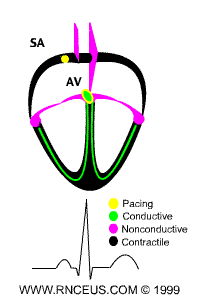- Community
-
Programs
- Schools
-
Careers
- RN Specialties
- Best RN Jobs and Salaries
- Aesthetic Nurse
- Nursing Informatics
- Nurse Case Manager
- NICU Nurse
- Forensic Nurse
- Labor and Delivery Nurse
- Psychiatric Nurse
- Pediatric Nurse
- Travel Nurse
- Telemetry Nurse
- Dermatology Nurse
- Nurse Practitioner
- Best NP Jobs and Salaries
- Family NP (FNP)
- Pediatric NP
- Neonatal NP
- Oncology NP
- Acute Care NP
- Aesthetic NP
- Women's Health NP
- Adult-Gerontology NP
- Orthopedic NP
- Emergency NP
- Psychiatric-Mental Health NP (PMHNP)
- APRN
- Nurse Educator
- Nurse Administrator
- Certified Nurse Midwife (CNM)
- Clinical Nurse Specialist (CNS)
- Certified Registered Nurse Anesthetist (CRNA)
- Resources
- Education


nicoleinphilly
52 Posts
First, I would like to say God bless you all. I am in my last semester of nursing school and we are learning how to read EKG's...I just learned it any my head is spinning!:roll
Any way, I know once I start memorizing some stuff it'll make more sense but I was wondering if you guys had any memorization tips you learned along the way to recognize a certain arrythmia or ANYTHING that has to do with EKG's.
This repolarization and depolarization has me a little confused...does repol mean the heart isn ot contracting at the time and depol means it is contracting?
Please help me if you can! Thank you so much guys!
Nicole